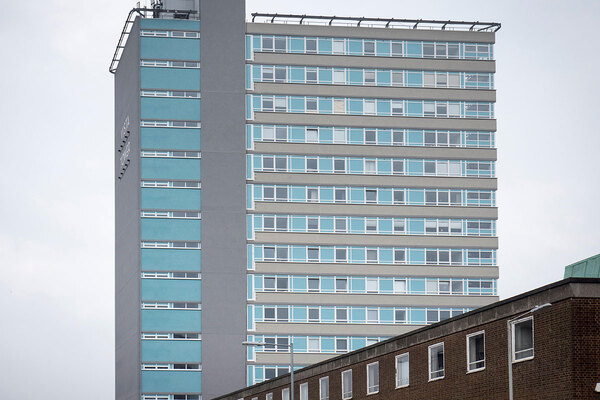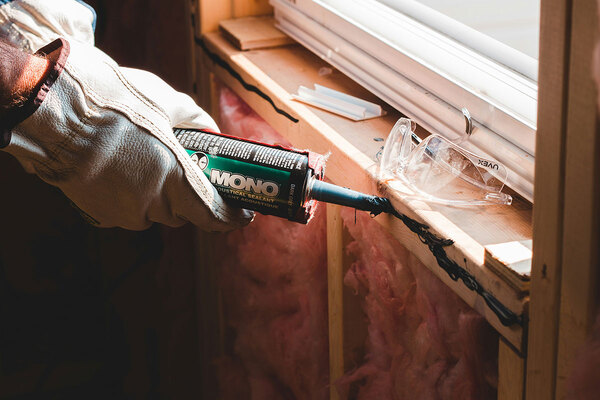Waste not want not
Letting mothballed properties could prevent irresponsible squatting and help bring thousands of empty homes back into use, argues Bill Randall
Tony Sleep is a very good photographer who has taken pictures of housing association tenants and their homes since black and white was the only show in town. But he has another housing claim to fame. He was minister of culture for the state of ‘Frestonia’, which was set up by squatters in three west London streets in 1977.
In its first flex of independence the tiny state’s foreign minister, the actor David Rappaport, called on the UN to send a peace-keeping force to hold off the Greater London Council and its bailiffs. Postage stamps bearing famous London Zoo resident Guy the Gorilla’s face and passports were issued in an echo of the Ealing comedy Passport to Pimlico.
Squatting revolution
However, Frestonia had a serious purpose. It was home to an ever-changing group of anywhere up to 120 homeless men, women and children until 1983. Then the residents formed Bramleys Housing Co-operative and negotiated the long-term redevelopment of the area with Notting Hill Housing Trust and the GLC to produce new homes for the co-op and a sheltered housing scheme.
The Frestonians were part of a nationwide squatting movement that flourished in the 1970s following the birth of the London Squatters Campaign in 1968 to ‘rehouse families from hostels or slums by means of squatting’. A year later the London Borough of Lewisham introduced the first licensed squatting initiative. In a few months the Lewisham Family Squatting Association was managing more than 80 houses and employing a full-time member of staff.
In 1970 housing charity Shelter stumped up £5,000 to launch the Family Squatting Advisory Service and by the end of 1973 more than 2,500 licensed squatters had a room somewhere in one of 16 London boroughs. By 1975 there were 300 squats in Bristol, 150 in Brighton and 100 in Leicester. Squats in Manchester, Glasgow and London provided the some of the first women’s refuges. Others were home to food co-ops, artists’ studios, bookshops and kids’ playgrounds. Like Frestonia, several squatting organisations later transformed into permanent housing associations or co-ops.
Immediate solution
Forty years later, squatting is still with us for the old familiar and pernicious reasons. The UK faces a chronic housing shortage and we have a government that does not see housing as a priority and is ready to make more cuts to the social housing budget. Indeed, it is widely predicted that housing benefit cuts will lead to increased homelessness.
Fears about social housing’s future are not confined to the usual suspects. At a recent housing gathering in London, senior City financiers shared the view with housing professionals and academics that the coalition government has no clear housing policy and little idea of where it is going. Furthermore, they agreed, traditional sources of private funding have been pretty much shut off and the government tap is likely to be turned off.
So here we are again. Housing is a train crash. The 4 million people in England who, according to the Local Government Association, are waiting for a council or housing association home cannot harbour a great deal of hope. In these circumstances, it is perfectly legitimate for those without homes and with little chance of finding permanent shelter, to turn to squatting and take over some of the 330,000 long-term empty homes left to rot by private and public landlords.
Unfortunately, squatting is not always benign or responsible. The Notting Hill Housing Trust worked successfully with Frestonia, but it was among several housing associations that completed the refurbishment of older homes in the 1970s only for squatters to move in before they could be let to families on local waiting lists. In some cases the flats were trashed.
So, faced with the prospect of increased squatting, public and private landlords should look honestly at the prospects of bringing their long-term empty properties into use and consider letting them to responsible squatter and other self-help housing groups. The many homes acquired for mothballed regeneration projects, for example, could provide shelter for homeless people. It is criminal to leave them empty.
Working model
Housing associations can help by working with groups to use the temporary social housing grant available from the Homes and Communities Agency to reclaim empty homes in public or private ownership. Some do already. Recently, Christian Action (Enfield) Housing Association raised TSG on behalf of Odu-Dua, a small black and minority ethnic housing association. The money funded the conversion of four large homes which Odu-Dua leases from Camden Council into 21 bedsits for young black people.
Camden, of course, is one of many local authorities that has agreements with short-life housing groups and others. Others with empty properties should follow suit. Taking this a step further, and in the spirit of the coalition government’s ‘big society’, they might also consider a permanent transfer of assets to community organisations.
Earlier this month, poet and playwright Heathcote Williams spoke at the Development Trust Association annual conference. One of the founding fathers of Frestonia, he is now deeply involved in the campaign to bring the Jericho Boatyard in Oxford into permanent community ownership. It aims to preserve the site from developers, ‘for the boatyard and for a genuinely human-scale housing development’.
Transfer of assets is a better and long-term solution, but squatting remains a legitimate, immediate and growing response to homelessness. Much better that landlords work with squatters, self-help housing groups and the national Self Help Housing organisation to make the most of empty homes at a time of deepening housing crisis.
Bill Randall is a housing writer, journalist and Green Party councillor







